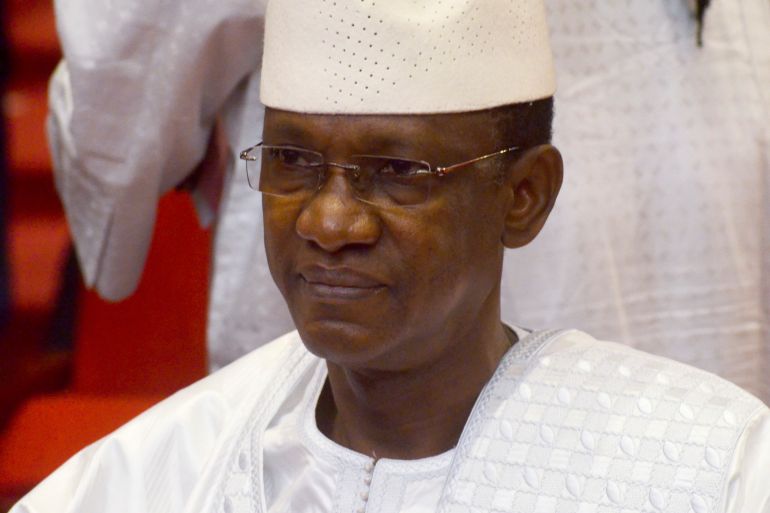Mali PM Choguel Maiga placed on ‘forced rest’ by doctor
Maiga is suffering from exhaustion after working for 14 months without break, his office says.

Mali Prime Minister Choguel Maiga has been placed on forced rest by his doctor on Saturday after months of intense exertion, his office has said.
“After 14 months of working without a break, the prime minister, head of government, Choguel Kokalla Maiga was placed on forced rest by his doctor,” his office said on its Facebook page on Saturday.
Keep reading
list of 3 itemsAl-Qaeda affiliate claims deadly Mali attack
From al-Shabab to the cabinet: Somalia’s move fuels debate
“He will resume his activities next week, God-willing,” the statement added.
An adviser cited by the news agency Reuters denied earlier media reports on Paris-based Jeune Afrique magazine that Maiga had been hospitalised after suffering a stroke.
Mali’s ruling military government named the former opposition leader as prime minister of the transitional government it leads in June of last year, after a military coup in August 2020.
Maiga has been one of the government’s most outspoken voices in repeated public arguments with West African neighbours and international partners who have criticised its military cooperation with Russian mercenaries and repeated election delays.
ECOWAS, West Africa’s main political and economic bloc, has been pressing Mali to respect its commitment to hold presidential and legislative elections following an August 2020 military coup. The new leadership has promised to organise democratic elections in 2024.
Maiga repeatedly condemned France for its “abandonment” of Mali in its conflict against armed groups in the country, which has been the epicentre of a bloody 10-year-old campaign by armed groups in the region.
Earlier on Saturday, the UN peacekeeping mission in Mali announced it would resume troop rotations for the nearly 12,000-strong mission on Monday, one month after Malian authorities suspended them and accused foreign soldiers of entering the country without permission.
It said they would resume following discussions with representatives from the mission, known as MINUSMA, about how to coordinate troop deployments.
Tensions have been high between Mali and the UN since 49 soldiers from Ivory Coast, including members of the special forces, were detained by Malian authorities last month.
Mali said the Ivorian soldiers did not have proper authorisation to come to Mali and accused them of being mercenaries.
A MINUSMA spokesperson told Reuters on Saturday that the mission and Malian authorities had agreed on a streamlined rotation procedure and that the mission’s request to resume rotations had been accepted.
Relations between Mali and troop-contributing countries remain strained. On Friday, Germany said it was suspending its military reconnaissance mission, which provides intelligence to MINUSMA, after Malian authorities withheld a flight clearance.
Mali’s foreign minister denied on Twitter that the government had done so and called on Germany to adhere to the new mechanism for approving troop rotations.
Western powers have repeatedly criticised Russian mercenaries working for Moscow’s controversial Wagner group deployed in Mali.
French Foreign Minister Jean-Yves Le Drian accused the mercenaries of plundering Mali’s resources in exchange for protecting the military government.
Russia is seen by a part of the population as a more effective ally in the fight against armed groups. In February, thousands of anti-French demonstrators waving Russian flags and burning cardboard cut-outs of French President Emmanuel Macron poured into the streets of the capital Bamako to cheer at the expulsion of the French ambassador.
Relations between Mali and its former coloniser deteriorated in January when the military government went back on an agreement to organise elections in February and proposed holding power until 2025.
Maiga’s transitional government has said it will hold elections in 2024.